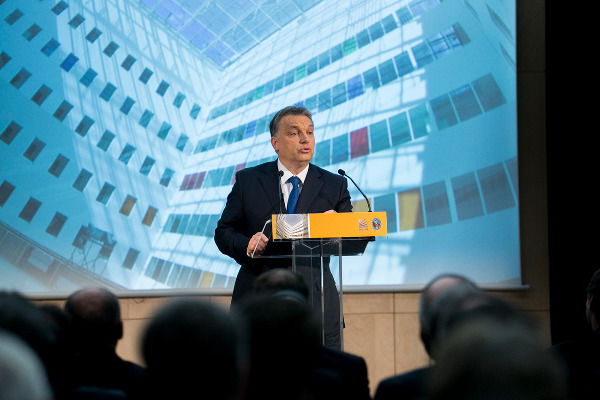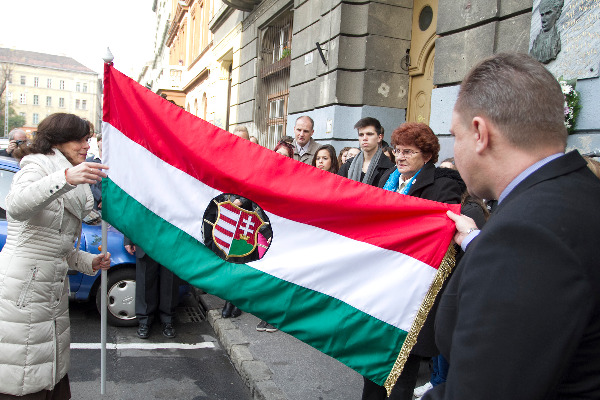| |
|
|
 |
Fidesz Reassures its Trans-Atlantic Commitment
|
The Russo-Georgian war yet again proved the strong attachment of Fidesz - Hungarian Civic Union and its partners to the Trans-Atlantic relations. Chairman Viktor Orbán has, from the very beginning, condemned Russian aggression and called for solidarity with Tbilisi. |
Created: 9th September, 2008 12:05 | Last updated: 11th September, 2008 15:45 |
 print print
|
 send send
|
|
|
|

The recent conflict highlighted that while the radical right in Hungary chose to side with Moscow and the cabinet opted for a seemingly neutral position, opposition Fidesz reassured its commitment to the Trans-Atlantic values condemning Russian military operations and urging a strong and united European response. At a conference in August, Mr Orbán said he was convinced that whenever a sovereign country had been attacked, Central and Eastern-European nations were obliged to talk clearly about the case. "This obligation is especially true about us, Hungarians, due to the heritage of 1956", he said. "Because of this, when an independent state is under military attack from Russia, we must speak up, on a clear moral basis", calling for a civilized, peaceful, diplomatic response to the situation. This could include speeding up Georgia's and the Ukraine's NATO-accession talks.
Following the speech of Mr Orbán, HE Igor Savolsky, the ambassador of the Russian Federation in Budapest, condemned the words of the former prime minister in an unusually harsh tone in diplomacy, stating that the chairman of Fidesz had "blood on his hands" in the conflict. "I listened to the words of Mr Orbán in part calmly and in part disgusted. They [the politicians of Fidesz] are preaching the very words of the neoconservatives."
Relations between Mr Savolsky and Mr Orbán have been tense since a conference organized by Fidesz on 27 March 2007 to commemorate the 50th anniversary of the Treaty of Rome signed in 1957, establishing the European Economic Community (EEC), the predecessor of the European Union. In his speech last March, Mr Orbán stated that there existed fundamental differences between the "European and the Russian way of thinking", the former being centered around free markets while the influence of the state continued to dominate and characterize the latter. Contrary to the actors of the free market in Europe, who accept the rules of competition, this logic is still denied in Russia. The chairman of Fidesz emphasized that Hungary should engage in a common European energy policy.
Mr Orbán's speech concluded, Zsolt Németh, MP of Fidesz and chairman of the Parliament's committee on foreign policy had just commenced his concluding speech when His Excellency, Igor Savolsky, the Russian ambassador to Hungary, also among the guests invited, took the stage unexpectedly and commented the speech of the former Hungarian PM, in spite of not being invited as a lecturer. Mr Savolsky declared that any European energy policy may only be based on the principles of free market competition and added that while the chairman of Fidesz was only concerned with domestic politics, it was not Russia but its companies that supplied the gas.
"Due to the existing pipelines, Russian gas and oil are cheaper, therefore there is no need to talk politics here", said the ambassador, continuing his remarks directed at Viktor Orbán. "Energy strategy, now that has to do with politics, but market is market. Am I understood, Mr Orbán?" - ended his comments the seemingly indignant Mr Savolsky.
Thus it comes as no surprise that the Atlanticist stance of Fidesz, especially in the crisis in the Caucasus and the case of the Nabucco pipeline project, affects the relations of the opposition party with the Russian embassy. The incumbent socialist cabinet chose an ambiguous position on both its choice of supported pipeline (i.e. the South Stream or Nabucco) and the Russo-Georgian war where it decided to stay "neutral" and follow the European Union's official position, while conservative Fidesz, from the beginning, stood by the EU's Nabucco plans and condemned Russian military actions against Georgia, demanding that the country's territorial integrity be restored. The chairman of opposition Fidesz even sent a letter to the leaders of Georgia, Ukraine, Poland and the Baltic states condemning "Russian military aggression". In the letter, Mr Orbán expressed solidarity with the Georgian people and congratulated the aforementioned states' leaders for visiting Tbilisi and showing continuous support for Georgia during the military conflict. The letter of Mr Orbán makes reference to the earliest possible NATO-accession of Georgia and the Ukraine.
(www.fidesz.hu, www.orbanviktor.hu)
|
 |
|
Jelenleg nincs információ
Tartsa a kurzort egy dátum fölé az aznapi programok- ért. Kattintson egy napra a részletekért.
Jelenleg nincs erre a napra vonatkozó információ
Keresse meg irányítószám alapján az Önhöz legközelebb működő választókerületi irodát!
|
|
 több
több


 több
több
 Az MTA Természettudományi Kutatóközpont új épületének átadása
Az MTA Természettudományi Kutatóközpont új épületének átadása
 Megemlékezés Gérecz Attilára
Megemlékezés Gérecz Attilára
 több
több
 több
több




























